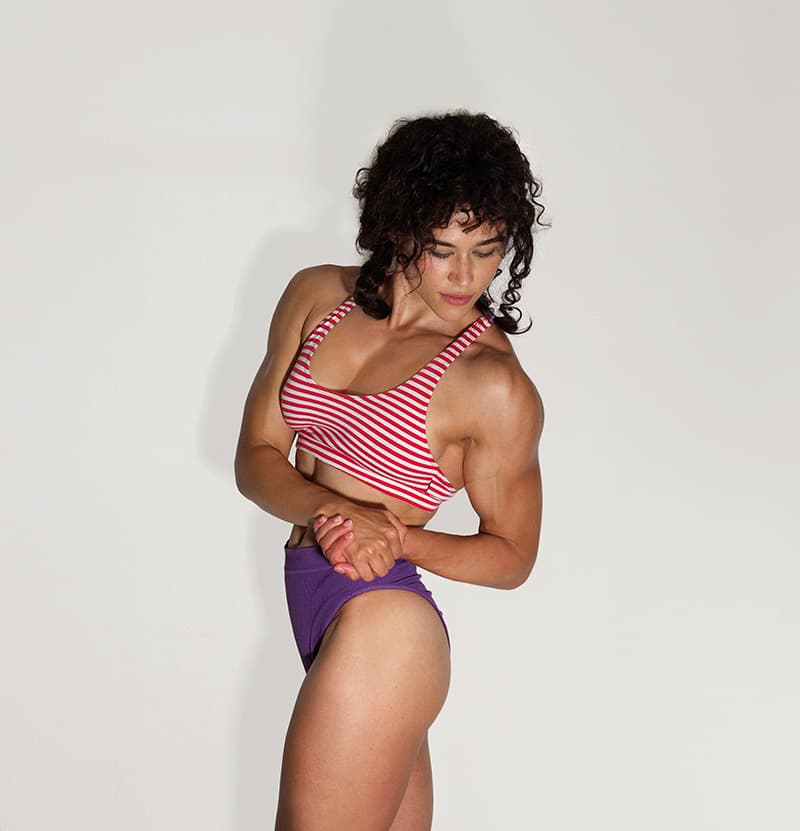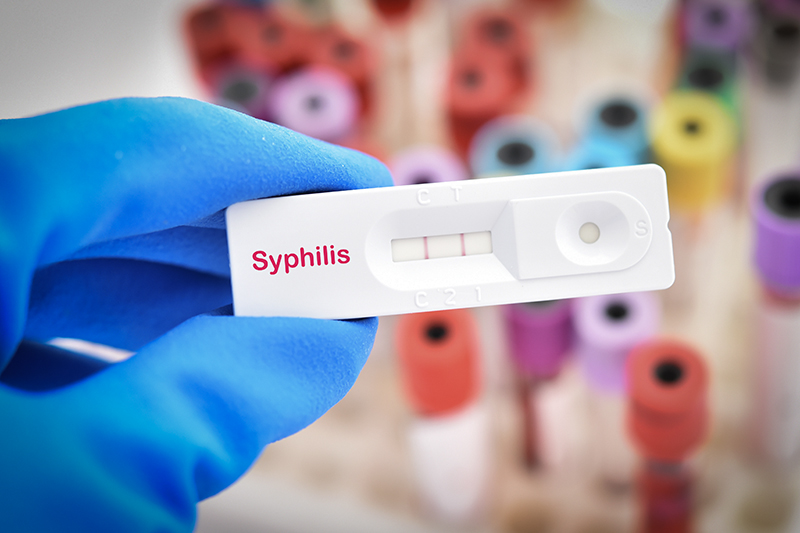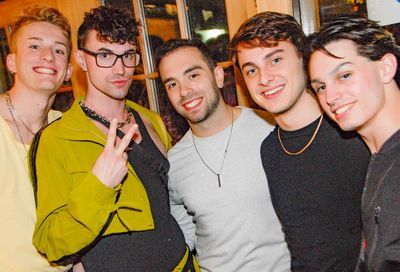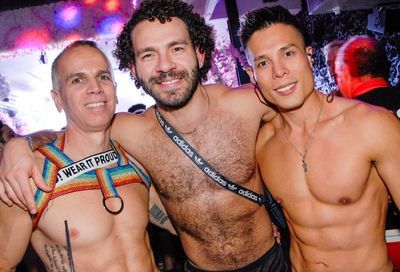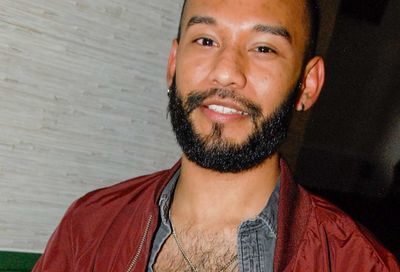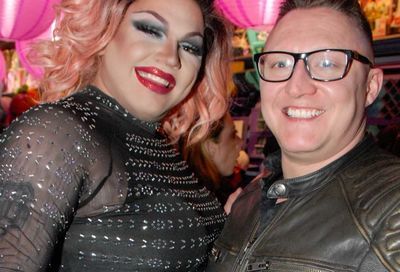Josh Thomas on autism, authenticity, and defining gay sex on television
The star and creative force behind Freeform's heartfelt comedy Everything's Gonna Be Okay has his own way of looking at the world

Josh Thomas is beyond distraught.
“Ah, fuck, I lost a suitcase! Ah, fuck! I lost my suitcase at security. Ah, shit! I’m an idiot. I have to go.”
And with that Thomas, the inventive creator and star of Please Like Me and Everything’s Gonna Be Okay is off the line. After a bit of schedule wrangling, the interview resumes a few days later, but not without its own set of issues, this time faulty cell service in the Hollywood hills that currently serve as the boyish 32-year-old Australian’s home in America. After twenty minutes, a connection is finally made.
“I’m yours,” he laughs.
Those unfamiliar with Thomas would do well to invest serious binging time into his shows, starting with Please Like Me, which opens with Thomas informing his girlfriend that they have to break up because he thinks he’s gay. The funny, deeply felt comedy, which ran for four seasons from 2013 to 2016, and is now available on Hulu, is a stunning mix of humor and drama, as it follows a group of mopish, self-involved twentysomethings as they adjust to the daily rigors of adult life. The romances on the show — both gay and straight — are messy and real. More to the point, Thomas’ character — also named Josh — must cope with a mother who is manic-depressive and prone to bouts of suicide. It’s startling material for a comedy, and comes mostly from Thomas’ own life. Only the cataclysmic fourth season is not rooted in reality.
“The last season is not autobiographical at all,” he says, his strong Australian accent bright and buoyant. “It’s a bit weird when you start making up big life events for a character that’s based on you.” After the series ended, Thomas had second thoughts and decided to do a fifth season, but the host network, Pivot, shuttered.
So he moved on to developing a new project, this time for the Disney-owned Freeform network, formerly ABC Family. The resulting show, Everything’s Gonna Be Okay, finds Thomas as Nicholas, half-brother to two American teenage girls, Matilda (the astounding Kayla Cromer), who is on the autism spectrum, and Genevieve (Maeve Press, equally astounding). In the premiere, their shared father reveals he’s dying of cancer and appoints Nicholas, an etymologist, as the girls’ guardian. As the episodes progress, challenges present themselves that are both minor (a broken finger) and major (Genevieve and her friends raid the medicine cabinet). Meanwhile, Nicholas attempts to navigate a relationship with the winsome and winning Alex, a dental student played with an abundance of warmth by Adam Faison.
“Josh has an amazing way of toeing the line between the comedic and the tragic,” says Faison. “He uses laughter as a coping mechanism. He’s never trying to hit the audience over the head with saying pedantically, ‘This is this way, this is this way, this is so black and white.’ He much more lives in that gray area. As we were reading lines, his notes to me were always to just be real, to be natural, to be myself.”
“I think Josh has a unique, specific voice,” says Silas Howard, who directed five of the show’s ten episodes. “I love the use of humor, how it comes out of really messed up situations, and how imperfect everything is. What I love about this show is the honesty, like people say the wrong things, and then they do something totally different and counterintuitive. So you’re getting to watch people fail. I think we need to have more acceptance of failure. There’s a lot of great comedy that comes out of that.”
Thomas, who is unabashedly gay, creates shows that attempt to fully incorporate the LGBTQ experience. Please Like Me dealt, extremely poignantly, with one character’s fears of coming out in a magnificent scene that brilliantly incorporated Sia’s “Chandelier.” It is television at its most poignant, sweet, and honest. Everything’s Gonna Be Okay is no less LGBTQ — but its tone is more self-assured, as Nicholas isn’t learning how to navigate new waters but rather stay afloat in familiar ones as he attempts to connect with someone special and lasting.
“Josh was very good about being like, ‘You know what? This is life, and this is our truth’ to the network,” says Faison, who is gay. “He was like, ‘You know what? I’m going to speak to the audience that I want to speak to, and cater to them, and if other people show up and want to learn something about us, too, that’s amazing. But if they choose not to, that’s totally their prerogative.’
“First and foremost, what he does is not make it so much like he’s trying to be, ‘We are queer, and it dictates every single thing about us.’ It’s kind of just like, ‘We are humans that just so happen to be queer, and this is what we do…. It’s something that I wish that I would’ve had growing up as a queer kid, as a role model.”
For his part, Thomas is happy with the latitude Freeform has provided him.
“Freeform is progressive,” he says. “This show is progressive. I think probably the most controversial thing — and fair enough — is that I wanted to use the word faggot. I would say probably that the word faggot hadn’t been used on any show that falls under the Disney umbrella. It was probably the only time that they really freaked out. They said, ‘We’ll run it by GLAAD,’ and I laughed. I thought, ‘Why are GLAAD better authorities on being gay than I am?’ GLAAD said that it was fine. Maybe they think if you’re a gay showrunner and you’re a gay actor, you’re allowed to use it. It’s our word.”

METRO WEEKLY: You’re a native of Australia. Tell me a little bit about your childhood there.
JOSH THOMAS: You know, it wasn’t that interesting. It was middle class. But I was definitely a weird kid, you know? I was loud and made a lot of mistakes and was always embarrassing myself.
MW: When did you come out to your parents?
THOMAS: I came out when I was 19. I was already pretty famous, so it was like a thing. My dad came to visit me in Melbourne, and I’d been living with my boyfriend for a year. I told him by a text message, I said, “Oh, by the way, I live with my boyfriend.” Then someone told my mom and she called me, “What’s this I hear about you having a boyfriend?” I said, “I can’t talk now, I’m on the train.” And then we never really spoke about it again.
I just didn’t really want to talk to my parents about sex at all in any way. So I just kept putting it off the same way you’d put off doing taxes. I only really worked it out for myself really late. When I was a teenager, I had sex with a lot of girls and I liked it. It was fun. I don’t really know how to explain that. I was into girls. It was kind of confusing. I kind of grew out of it.
I had a cute girlfriend and then I fell in love with a guy and I was like, “I don’t really think I’m capable of being in love with a girl.” That’s what forced me to bother to come out. I always thought being gay was about sexuality, but it’s not just sexuality. It’s who you are capable of loving, which was a lot more powerful kind of epiphany to me personally than the sex.
MW: Was there a revelatory moment when you engaged with a guy?
THOMAS: I don’t think as far as horniness goes there was a revelatory moment. I felt, “Hmm, I don’t know if I’m going to have sex with any more girls.” And then I had sex with the guy. It was definitely more — I dated him. He was my first boyfriend for two years. He was my first love, and that definitely was much more powerful than the dicks-in-butt experience of it all.
I feel like a lot of people on their sexuality journey are like, “Oh, I knew since I was nine years old.” I definitely didn’t and I don’t think it was some deep-seated hiding of my true identity just because everyone was calling me a fag every lunchtime. I don’t think that’s necessarily why I was interested in girls. I think actually I was for a bit, but life’s not that tidy, is it? I don’t know — maybe I’m bisexual? Maybe I could kiss a girl again?
MW: I stumbled upon Please Like Me because the New Yorker reviewed it, and when Emily Nussbaum says watch something, I watch it. I was absolutely hooked from the first episode. I’d never seen a comedy show that dealt with issues as honestly and openly as Please Like Me — particularly depression and mental illness. What was the experience of making that show like for you?
THOMAS: I had never been on a film set in my life, but I had things that I was really sure that I wanted to do. I really wanted to be realistic in it. I wanted to make both comedy and drama, which these days is normal. But we started pitching that show back when I was straight. We were in development on that show for a long time, and back then it was kind of an unusual idea to have both comedy and drama in the same show.
The thing that frustrated me when I looked at TV was that shows weren’t realistic. They usually stuck to these really strong genres — shows where everybody is dramatic all the time and just share their most traumatic feelings and have fights. Those are really silly. Shows where people are just funny all the time and don’t have feelings — also really silly. So those are the things I wanted to do, but I didn’t know how to make TV at all. I did a semester of National Creative Industries: Television, which is enough, actually. They teach you that there’s cameras and there’s actors and there’s lights and that it costs money and you have to point the cameras at the actors and light them and then edit it together on budget. Which, actually, is all I needed to know. I think the success we had in that show was because I had no idea what the fuck I was doing. I knew what I liked and that was really it.
I never thought it was going to show in America. We were making it in a house in the suburbs of Melbourne and it just didn’t seem like a big deal. We were just out there making this inexpensive little show. As the seasons go on, I technically got more proficient at how to make TV and I got better at knowing how to build moments. There’s bigger, longer-lasting emotional moments as you go through Please Like Me.
MW: I loved the way the show dealt with LGBTQ authenticity in almost every regard. But I also thought what was groundbreaking was the way it dealt with Josh’s relationship with his parents, specifically his mother and her suicidal tendencies. You just don’t see that in sitcoms.
THOMAS: That struggle is obviously from my mom’s real life and it was the central pitch of the show. One of the things that we were wanting to lean into was the first time my mom attempted suicide when I was, I think, 19. I want to say everything happened when I was 19, but surely some of the things must have happened when I was 18 or 20. But it was the first time I realized my mom had feelings. In a weird way, when you’re a kid you sort of don’t consider your parents’ feelings, you don’t consider them as being flawed. I think the central pitch was that it was a show about the main character discovering that his parents are dopes like everybody else. So that was the pitch of the show, was Josh working out that his parents are actually flawed people the same as everybody else.
MW: How close are you in personality to the characters that you portray?
THOMAS: I think Josh in Please Like Me is a slightly worse version of me and Nicholas in Everything’s Gonna Be Okay is a slightly better version of me. I’m somewhere in the middle. You can’t write yourself that nice, you know? Of course, it’s my own show, so I can make myself a paramedic, or I can give myself a job where I just go around rescuing kittens all day and seem like a really nice guy. But isn’t it kind of gross to do that? If you look at other shows where the creator is the star, they’re generally not great people because it would just be douchey to write yourself as some sort of hero all the time. You have to be honest about how flawed you are.
MW: What’s interesting about Josh is that despite some obvious, often bitter self-defense mechanisms he uses, he’s actually very charming. You watch the show and think, “I want to be around this guy. I want him as a friend.” He’s magnetic. You can’t help but adore him even when he’s being vicious to his best friend Tom, which is often.
THOMAS: Yeah. I mean, I don’t do anything that mean. The truth is sometimes people think he’s being mean and I’m like, “No, I like to think he’s naughty.” I mean, he’s also pretty emotionally frazzled. I can’t remember to be honest. I do remember people getting mad at him for a while because he was being mean. Look at Girls, they’ve done some terrible stuff. Look at Larry David — he’s not a good guy in his show.

MW: Your new show Everything’s Gonna Be Okay just started its ten-episode run on Freeform. It has a lot of similarities to Please Like Me in that it’s dealing with topical issues — it strives to illuminate while making you laugh or touching your heart. Overall, though, it’s a kinder show.
THOMAS: Well, the series had to be kinder because it’s dealing with teenage girls. And the central premise is of this boy, Nicholas, doing a hugely noble thing to look after these girls.
MW: But the show is no less authentic and at times quite startling. It deals very frankly with autism. There is a scene in the fifth episode, about consent and its aftermath, that is remarkably, adroitly handled. I don’t want to discuss the specifics because I think viewers should experience it. But it left me gasping and very impressed.
THOMAS: I did so much autism research for this new show. The central kind of vibe I get from any kind of autism activism is they’re just asking people to be more understanding. When you meet someone who is autistic, you don’t know the person you’re interacting with, you don’t know what they’re dealing with, you don’t know their capacity for understanding, what their social skills are. You don’t understand what their sensory issues might be, or what they might be going through in their life. To me, that feels like the central premise of most neuro-diversity activism. So the kindness in Everything’s Gonna Be Okay comes from the fact you’ve got a character at the center of the show who is autistic. The messaging needs to be, “Hey, let’s take a moment to appreciate that you don’t know everything about every person that you meet, and try and treat them with kindness.” It comes from that place. It was definitely a decision we made. That two-episode arc about consent and autism, which is, I would say, a generous amount of episodes for a single topic, came from research. I would talk to parents and caregivers of autistic teenagers, and they would be really nervous about their sex life, especially autistic girls.
I noticed that if their daughter had a diminished ability to read social cues and then sex happens behind closed doors and the parent can’t be there to help them, it just puts them in a position where their daughter could easily be taken advantage of. That seems to be one of the biggest fears of parents of autistic teenage girls and boys, but obviously more girls. Then I would talk to autistic girls, and they would get really frustrated that they’re not given a chance to make their own decisions, that they’re often infantilized, and that people with disabilities can often be sexualized. Those two viewpoints are really understandable, they’re really powerful, and navigating those two things is really challenging.
One of the great things about a TV show is you can have multiple viewpoints and you don’t have to pick a side. So, that’s what those two episodes are about. Please Like Me was always just about my own life, but this show’s research-driven. I’m just interested to see the way the world thinks of it and what kind of conversation it inspires. We don’t take a point of view in this show because I don’t really know how to have a point of view on it, to be honest.
MW: Do you have collaborators?
THOMAS: We’ve got a writer’s room, and I’ve got a producing partner. A big part of my job is getting people on board. That’s my real secret skill — being able to get people on board, to take the risks and tell stories that are scary stories to tell. They’re definitely stories I feel nervous about telling. They’re usually things that interest me, things that I feel haven’t been covered on TV that much. If I don’t find it that captivating then we’re not going to do it. This is the stuff that I find really captivating.
MW: One of the interesting things about Everything’s Gonna Be Okay is that I would call it almost aggressively gay. I mean that in a good way, of course, but in the very first minutes we encounter this budding relationship between Nicholas and Alex.

THOMAS: It opens aggressively, yes. We cut to a gay kiss seven seconds in. My mom saw the pilot and was like, “Don’t you think you should move the gay kiss later in the pilot because it might turn people off?” But I literally open on a gay kiss as a shield. I’m like, “I don’t want you to watch this show if you’re homophobic. If you’re homophobic, you don’t get to watch this show. You can go and watch another show.” Because I just don’t have any interest in having a fan base that’s homophobic. I’m just not interested in it.
MW: It’s great to see a show deal with the conviction of gay relationships and sex the way both your shows do. The first full sex scene in Everything’s Gonna Be Okay is brief but it’s very clear you both take a turn at topping the other. It’s done in two simple cuts, and it’s artful.
THOMAS: Gay sex scenes to me are really important, and anal sex scenes are challenging because to heterosexual couples, of course, anal sex seems R-rated, right? But to me anal sex is actually pretty banal — it’s just what we do. Gay sex is anal sex.
Please Like Me had two networks and a few different sets of executives and this show has a whole new set of executives, and the networks are very open to having gay sex scenes. But whenever we hint at it being anal sex, they get shy and I overreact. So I’ve had a lot of fights over the years about it. I very subtly make the point that we have to be able to show that they’re having gay sex — anal sex. Because if we’re not showing anal sex, we’re not showing gay sex. I say to them, “If you’re telling me that I can’t show anal sex, you’re telling me I can’t show gay sex. You’re telling me that I can show gay heavy petting whereas we’re allowed to show heterosexual sex. That’s not fair.”
It’s something that I’m very passionate about. It’s something that I think I get to do because I am willing to stay on the phone longer about it than they are. Basically, my attitude towards getting anal sex scenes on TV is “Well, I don’t have a family, and you guys do, so I’m happy to just stay on the phone and argue about it until we get to a resolution.”
As for the characters of Nicholas and Alex, I didn’t want there to be too much of a conversation about whether they were tops or bottoms. But now it’s led to this conversation about them being vers, which is good as well.
MW: Cooking was so important in Please Like Me. Insects have replaced cooking here.
THOMAS: Yeah!
MW: What was the reasoning there? Are you an insect fan?
THOMAS: I hooked up with a boy once as he was leaving to go into the forest to research grasshoppers for a year. I just thought that was really charming. So I took it for my character of Nicholas. And then, in the process of researching it, I got really obsessed with bugs. I even had some pet bugs for a while. Those blue death feigning beetles they have in the second episode, I had some pet ones that I was pretty obsessed with. They ended up escaping, which was devastating. I wanted to get a tarantula, but I realized that I don’t have my shit together enough for a pet tarantula. They’re kind of pedantic to look after.
MW: Can a bug truly be a pet?
THOMAS: Yeah! You can have pet bugs, man! Those blue death feigning beetles are pretty popular pets because they’re really pretty and you can leave them open in a bowl. They’re really easy to look after if you’re in the right climate. People have pet spiders, pet tarantulas. Some you can carry and some you can’t. Scorpions are really popular. You can get these scorpions that don’t sting.
MW: Are you romantically involved at the moment?
THOMAS: No, for the first time in my life, I’m single. I’ve been single for a whole year! It’s boring being single. It’s just me and this dog, John from Please Like Me. He’s here with me now. He’s just doing some licking. That’s what he’s doing. He loves to lick. That’s all he does these days. He’s really excited that I’m talking about him.
MW: What are you learning about yourself now that you’re single?
THOMAS: I’m just bored, man. These hours in the evening. I don’t know what people do with these hours in the evening. Watch TV, I guess.
MW: What do you do?
THOMAS: I don’t know. I pat my dog, I watch a little telly, call someone. All the time I was with the boyfriend I was always lamenting that I never got to be single. Now I’m single, I realize it’s very dull.

MW: If your characters are any indication of what you are like to be with on a date, you are probably the most interesting date in the world.
THOMAS: I’m not like that. And I’m not going on a date with anyone in L.A. — it’s fucking torture, man. It is torture. I’m a celibate here. I can’t deal with those boys down the hill in West Hollywood. No way. I can’t. No thank you.
MW: So what is your ideal boyfriend?
THOMAS: You would know who I date! They’re in my shows! You can see the type of boy that I date. Usually, they’re very sweet, very understanding, funny boys who think I’m funny. That’s usually the go to. Also, quite smart.
MW: I’ve got to ask you to comment on the horrible fires in Australia.
THOMAS: There’s a lot of houses that have burned and a couple of deaths but mostly it’s been pretty devastating for our wildlife. A lot of species we’re worried that might go extinct. We’ve lost a lot of koalas. It’s pretty crazy. In 2009, our climate change department of the government wrote a report saying that in 2020 these wildfires are Gonna be really big and that we need to prepare for them. The response of the government was to shut down the climate change department. They’ve had a climate change-denying government for 10 years.
The New South Wales government, the state where the fires are the biggest, cut the fire-fighting services by tens of millions of dollars because they just didn’t want to believe that science. They just didn’t want to believe it. We were not as prepared as we should have been. It’s been a disaster.
Often, conversation on climate change is about stopping it, but actually we need to believe it’s true so that we can prepare for disasters like this. Australia didn’t really believe it was true and we weren’t as prepared as we should’ve been. I think people are acknowledging that now. Obviously, with natural disasters, you can’t really blame anyone, but we definitely could have been better prepared.
MW: We’re having the same problem in America with the Trump Administration denying climate change. I just don’t understand how people deny science.
THOMAS: I don’t know, man. It seems to come from an economic point of view. Australia sells a lot of coal. We make a lot of money out of coal. But the fact is our coal isn’t worth what it used to be and that industry is not as valuable anymore. We just keep doubling down on it. You can’t make money if all your farms are burning down. That’s a lot of industry that we’re losing. I don’t really get it.
MW: What do you think when you look at what’s happening in America?
THOMAS: [Laughs.] American politics is nuts, man! I don’t know. It makes me feel better about Australia! You guys are fucking bananas.
MW: Before we go, I have to bring this up. You get into drag at one point in the show — and you give a great performance.
THOMAS: Thank you. I don’t think I ever worked so hard in my life, oh, my God. Of course, it’s like a dream if you can hire people to put you in drag. We put a lot of time into that. I don’t know if it’s very justifiable as far as the narrative goes because, as a TV creator whose main criteria is realism and authenticity, that scene probably falls outside the realm of those things. But I’ve got my own show and I thought, “Fuck it. I’m just going to do it.”
MW: Did you come up with a drag name?
THOMAS: My drag name is Blessed.
MW: Say that again? I didn’t….
THOMAS: Blessed. B-L-E-S-S-E-D. [Laughs.] I deliberately chose a drag name that Americans can’t understand when I say it in my accent.
Everything’s Gonna Be Okay airs Thursdays at 8:30/7:30c on Freeform. Watch previous episodes on the Freeform app and at www.freeform.go.com.
All four seasons of Please Like Me are available to watch on the Hulu app and at www.hulu.com.
Support Metro Weekly’s Journalism
These are challenging times for news organizations. And yet it’s crucial we stay active and provide vital resources and information to both our local readers and the world. So won’t you please take a moment and consider supporting Metro Weekly with a membership? For as little as $5 a month, you can help ensure Metro Weekly magazine and MetroWeekly.com remain free, viable resources as we provide the best, most diverse, culturally-resonant LGBTQ coverage in both the D.C. region and around the world. Memberships come with exclusive perks and discounts, your own personal digital delivery of each week’s magazine (and an archive), access to our Member's Lounge when it launches this fall, and exclusive members-only items like Metro Weekly Membership Mugs and Tote Bags! Check out all our membership levels here and please join us today!




